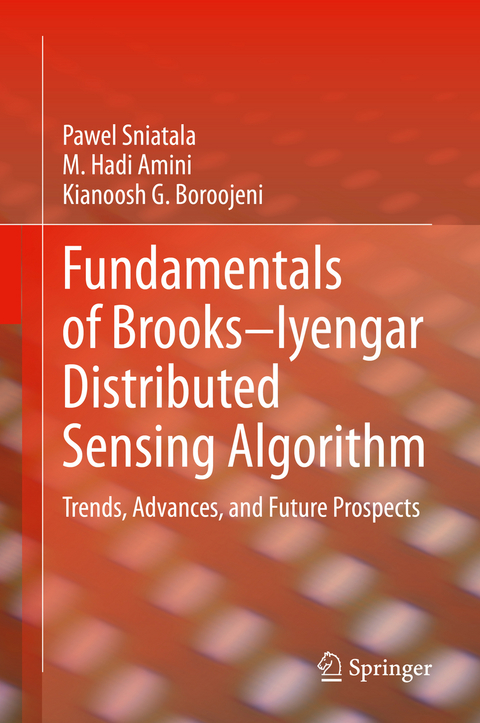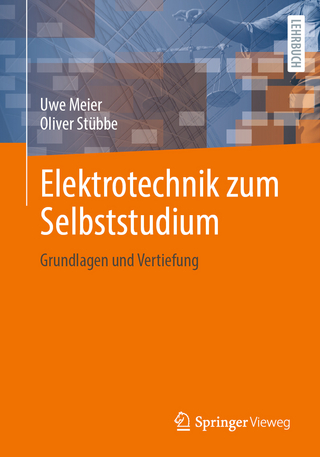
Fundamentals of Brooks–Iyengar Distributed Sensing Algorithm
Springer International Publishing (Verlag)
978-3-030-33131-3 (ISBN)
This book provides a comprehensive analysis of Brooks-Iyengar Distributed Sensing Algorithm, which brings together the power of Byzantine Agreement and sensor fusion in building a fault-tolerant distributed sensor network. The authors analyze its long-term impacts, advances, and future prospects. The book starts by discussing the Brooks-Iyengar algorithm, which has made significant impact since its initial publication in 1996. The authors show how the technique has been applied in many domains such as software reliability, distributed systems and OS development, etc. The book exemplifies how the algorithm has enhanced new real-time features by adding fault-tolerant capabilities for many applications. The authors posit that the Brooks-Iyengar Algorithm will to continue to be used where fault-tolerant solutions are needed in redundancy system scenarios.
Pawel Sniatala received the M.S. degree in Telecommunication, M.S. degree in Computer Science and Ph.D. degree in Microelectronics all from Poznan University of Technology, Poland. He received the habilitation degree (D.Sc.) in electronics in 2016. From 1998 to 2002 he was with the Department of Computer Engineering at the Rochester Institute of Technology (USA). He returned to Poznan University of Technology to take a position in the Faculty of Computing, where currently, he is the Vice Dean for Industrial Cooperation. He also graduated the international MBA study in join programme George State University and Pozna University of Economics. His area of interests focuses on VLSI circuits for digital and mixed analog-digital signal processing systems: UltraLow Power ASIC design, Implantable IC, Signal/Image processing hardware-software codesign, Hardware accelerators. However, following his computing science background, he is also involved in research projects related to eHealth area. He was involved in several industrial projects e.g.: control and monitoring systems for gas mine systems, control systems for water treatment plant and teletechniques systems for airport. He has served in several international Ph.D. and M.S. committees (Portugal, USA). He was giving invited courses/lectures in several universities outside Poland: USA, Portugal, Peru, Taiwan. He is an author and coauthor of 90 papers including a monograph: P. Sniatala, CMOS Current Mode Modulators, Poznan Monographs in Computing and Its Applications, Poznan 2016. M. Hadi Amini M. Hadi Amini received his Ph.D. and M.Sc. from Carnegie Mellon University in 2019 and 2015 respectively. He also holds a doctoral degree in Computer Science and Technology. Prior to that, he received M.Sc. from Tarbiat Modares University in 2013, and the B.Sc. from Sharif University of Technology in 2011. He is currently an Assistant Professor at School of Computing and Information Sciences, College of Engineering and Computing at Florida International University (FIU). He is also the founding director of Sustainability, Optimization, and Learning for InterDependent networks laboratory (solid lab). His research interests include distributed machine learning and optimization algorithms, distributed intelligence, sensor networks, interdependent networks, and cyberphysical resilience. Application domains include energy systems, healthcare, device-free human sensing, and transportation networks. Prof. Amini is a life member of IEEE-Eta Kappa Nu (IEEE-HKN), the honor society of IEEE. He organized a panel on distributed learning and novel artificial intelligence algorithms, and their application to healthcare, robotics, energy cybersecurity, distributed sensing, and policy issues in 2019 workshop on artificial intelligence at FIU. He also served as President of Carnegie Mellon University Energy Science and Innovation Club; as technical program committee of several IEEE and ACM conferences; and as the lead editor for a book series on ''Sustainable Interdependent Networks'' since 2017, as well as . He has published more than 60 refereed journal and conference papers, and book chapters. He has co-authored two books, and edited three books on various aspects of optimization and machine learning for interdependent networks. He is the recipient of the best reviewer award from four IEEE Transactions, the best journal paper award in "Journal of Modern Power Systems and Clean Energy", and the dean's honorary award from the President of Sharif University of Technology. (homepage: www.hadiamini.com; lab website: www.solidlab.network) Kianoosh G. Boroojeni received his PhD in computer science from Florida International University. He received his B.Sc degree from University of Tehran in 2012. His research interests include smart grids and cybersecurity. He is the author/co-author of a n
Part I Introduction.- Introduction to Sensor Networks.- Introduction to Algorithms for Wireless Sensor Networks.- Fault Tolerant Distributed Sensor Networks.- Part II Advances of Sensor Fusion Algorithm.- Theoretical Analysis of Brooks-Iyengar Algorithm: Accuracy and Precision Bound.- The Profound Impact of the Brooks-Iyengar Algorithm.- Part III Trends of Brooks-Iyengar Algorithm.- Robust Fault Tolerant Rail Door State Monitoring Systems.- Part IV Applications of Brooks-Iyengar Algorithm for The Next 10 Years.- Decentralization of Data-Source using Blockchain-based Brooks-Iyengar Fusion.- A Novel Fault-Tolerant Random Forest Model using Brooks-Iyengar Fusion.- Designing a Deep-Learning Neural Network chip to detect Hardware Errors using Brooks-Iyengar Algorithm.- Ubiquitous Brooks-Iyengars Robust Distributed Real-time Sensing Algorithm: Past, Present and Future.- Index.
| Erscheinungsdatum | 18.02.2020 |
|---|---|
| Zusatzinfo | XXI, 202 p. 46 illus., 42 illus. in color. |
| Verlagsort | Cham |
| Sprache | englisch |
| Maße | 155 x 235 mm |
| Gewicht | 506 g |
| Themenwelt | Technik ► Elektrotechnik / Energietechnik |
| Technik ► Nachrichtentechnik | |
| Schlagworte | Blockchain • Brooks-Iyengar Algorithm • byzantine fault tolerance • Deep learning • Distributed sensing • Fault tolerant algorithms • Real-time Sensing |
| ISBN-10 | 3-030-33131-8 / 3030331318 |
| ISBN-13 | 978-3-030-33131-3 / 9783030331313 |
| Zustand | Neuware |
| Haben Sie eine Frage zum Produkt? |
aus dem Bereich


